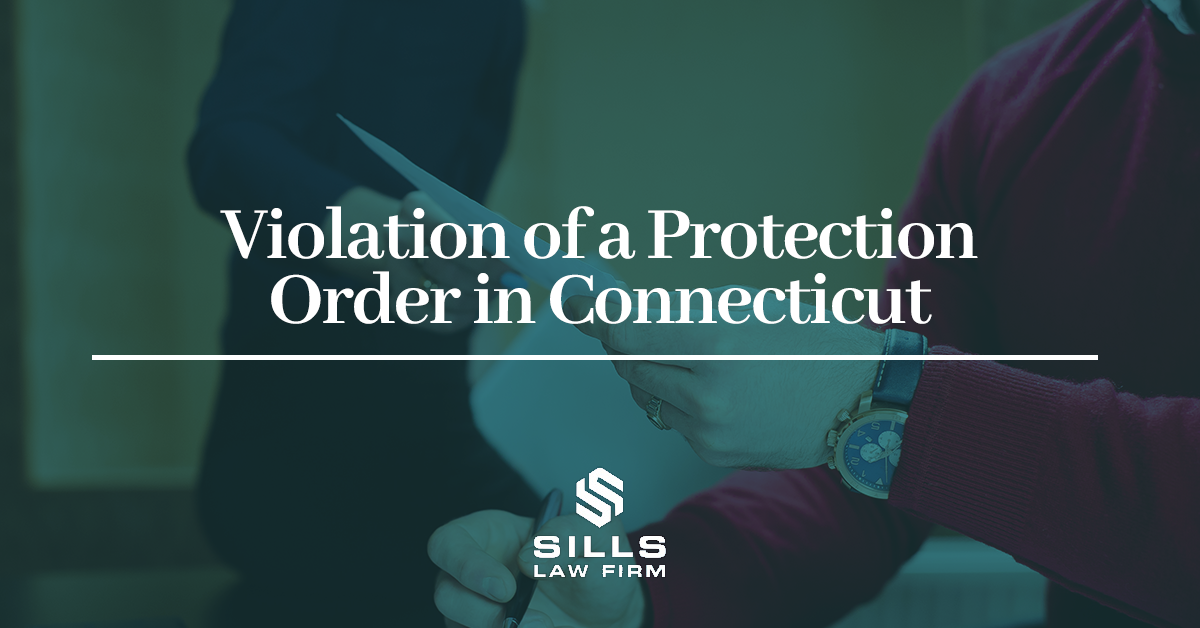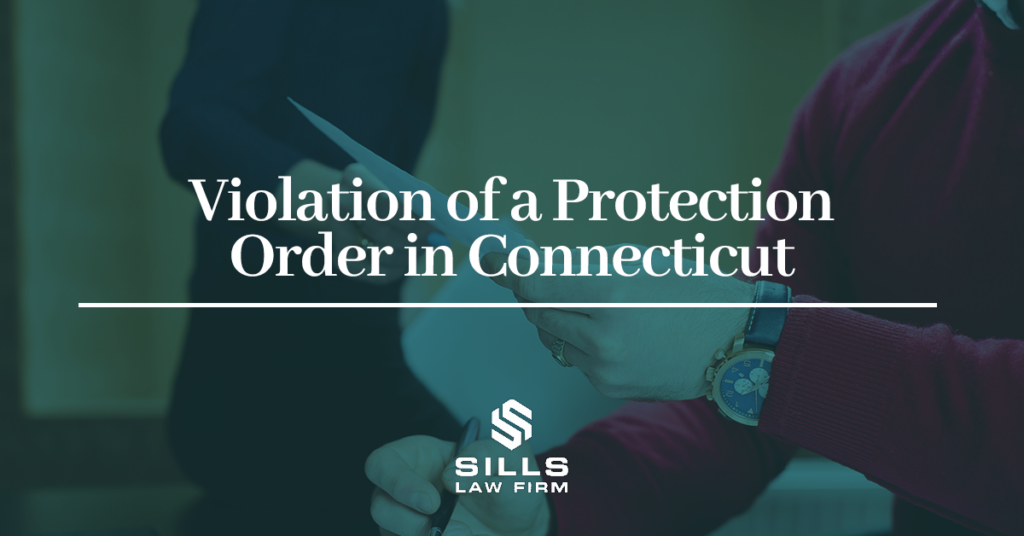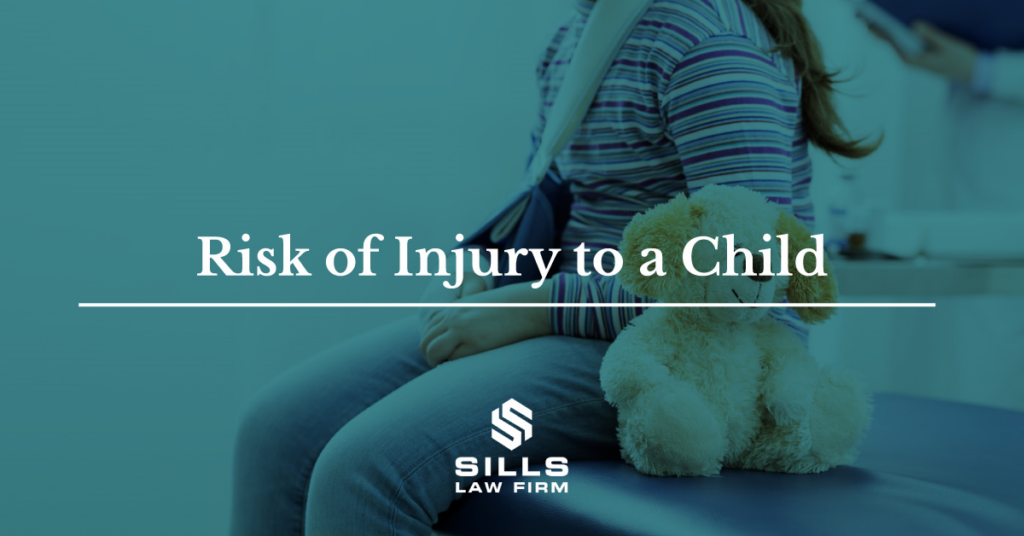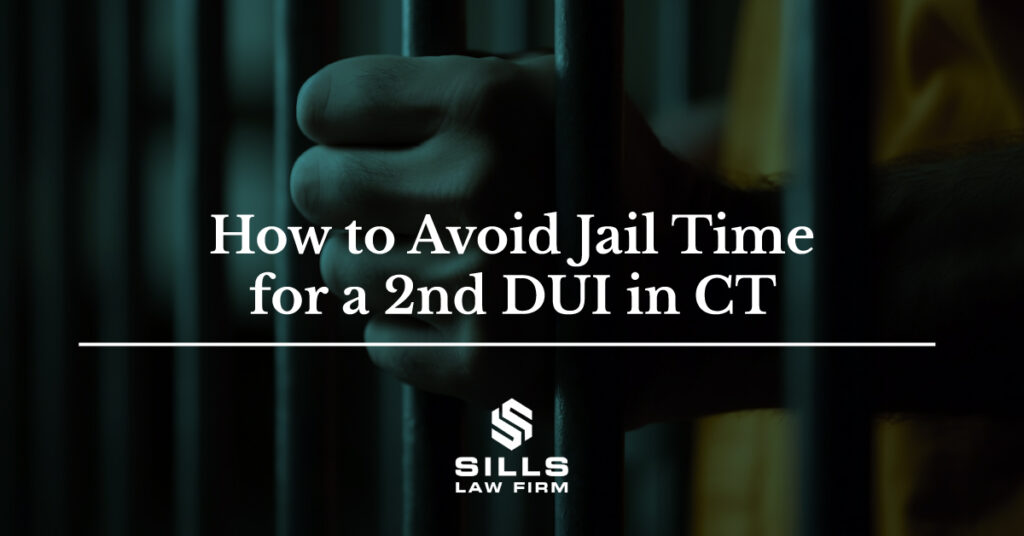In almost every domestic violence case in Connecticut, the court will issue an order of protection. This criminal protective order will state exactly what the person named in the order can and cannot do. If you violate the protective order, you could be charged with a felony offense.
A criminal violation of a protective order is classified as a Class C or Class D felony. If convicted, you may be sentenced to anywhere from 1 to 10 years in prison. In addition, you will pay a large fine and face collateral consequences like loss of your right to bear arms.
At the Sills Law Firm, we represent people who are facing all types of domestic violence criminal charges. We understand that these cases are often complex, and work to guide our clients to help them understand the law and protect their rights. We fight to help each of our clients obtain the best outcome for their case. Reach out today to schedule a free initial consultation with a Connecticut domestic violence lawyer.
When Can a Person Be Charged with a Protection Order Violation in Connecticut?
In Connecticut, a court may issue a protective order in domestic violence cases. Three types of protective orders may be issued:
- No-contact order: this protective order forbids any type of contact, including verbal, physical, electronic, and contact via a third party.
- Residential stay-away order: this protective order allows for contact, but the person cannot go to the home of the protected individual.
- Partial protective order: with this type of protection order, a person is restricted from harassing, assaulting, or threatening the protected individual. The parties can still have contact and even live together.
These civil restraining orders are typically issued after a domestic violence arrest. The purpose of the order is to protect the victim/accuser from the person who is alleged to have abused them.
A protective order is civil, which means that it won’t show up on your criminal record and can be issued without a jury trial. However, if you violate an order of protection, then you will be facing criminal charges. These charges will be in addition to any that you face for domestic violence, sexual abuse, or a related offense.
The crime itself is simple: a person is guilty of criminal violation of a protective order when such an order has been issued against them, they are aware of the order, and they violate that order. The protected person listed on the order cannot be charged with a crime for soliciting or aiding in violating a protective order.
For example, consider a situation where your girlfriend alleges that you physically assaulted her and presses charges for domestic violence. The court issues a civil restraining order against you that prohibits you from being in or at her house. One night, she calls and asks you to come over to talk. If you go to her house, you could be charged with violating the protective order – but she will not be charged for asking you to violate the order by coming over to her house.
Violation of a protective order is an incredibly serious criminal offense. If you are facing domestic violence charges and there is a protective order in place, you must understand the terms of the order and how violating it can affect you. Consult with a Connecticut domestic violence attorney to learn more about your rights and how you can protect yourself.
Consequences for Criminal Violation of a Protective Order
A criminal violation of a protective order is typically charged as a Class D felony. However, in some situations, it may be elevated to a Class C felony. Specifically, the crime is a Class C felony if you violate a protective order in a way that involves:
- Restraining the protected person’s liberty (such as by refusing to allow them to leave); or
- Threatening, harassing, assaulting, molesting, sexually assaulting, or attacking a protected person.
In Connecticut, a Class D felony is punishable by up to 5 years in state prison and a fine of up to $5,000. A conviction for a Class C felony will result in a sentence of between 1 and 10 years in prison and a fine of up to $10,000.
A felony charge won’t just land you in prison for a year or longer. It also comes with many other collateral consequences. For example, if you have a felony conviction and/or a domestic violence conviction, you will not be able to own a firearm in the state of Connecticut. Having a felony conviction can also impact your ability to get a job, find housing, keep custody of your kids, and more.
Significantly, even if the underlying domestic violence is a misdemeanor offense, violating a protective order is a felony. For this reason, if you are involved in a domestic violence case, you must understand the terms of the order (such as the forms of contact prohibited) and your rights and options. If you ignore a protective order, you will likely be sentenced to jail time.
There are several potential defenses to a violation of a protective order charge. Using the example above, while a protected person cannot be charged for essentially baiting someone into violating a protective order, the fact that they did so could be used in your defense. Your Connecticut criminal defense lawyer will examine every aspect of your case to determine the best legal and factual defenses, such as:
- It was an unintentional or technical violation
- You did not violate the protective order
- You were set up by the protected person or someone else.
For example, if you happened to walk into the same restaurant as the alleged victim, your lawyer may argue that this was not an intentional violation and should not be charged as such. Similarly, if cell phone and other technological data prove that you never contacted the protected person, that evidence could be used to reduce or dismiss the charges against you.
Violating a protective order is a serious issue. Both criminal and domestic violence courts take any violation seriously and will impose harsh consequences. Our criminal defense attorneys will help you understand your rights in a domestic violence case, including how to avoid protective order violations.
Dealing with Domestic Violence Issues? Give Our Law Offices a Call.
In Connecticut, domestic violence courts will issue protective orders to the alleged victims of abuse. While these orders are civil, a violation of a domestic violence protective order is a criminal offense. Because a violation of a protective order is a felony charge, you should reach out to a Connecticut domestic violence lawyer immediately.
The Sills Law Firm represents individuals who have been charged with all types of domestic violence crimes, including both physical abuse and sexual assault. We understand the unique, highly-charged dynamics that are at play in many of these cases, and work to help our clients get the best possible outcome – and avoid a potential restraining order violation.
To learn more or to schedule a free initial consultation with a Connecticut criminal defense lawyer, give us a call at 860-524-8118 or fill out our online contact form.






